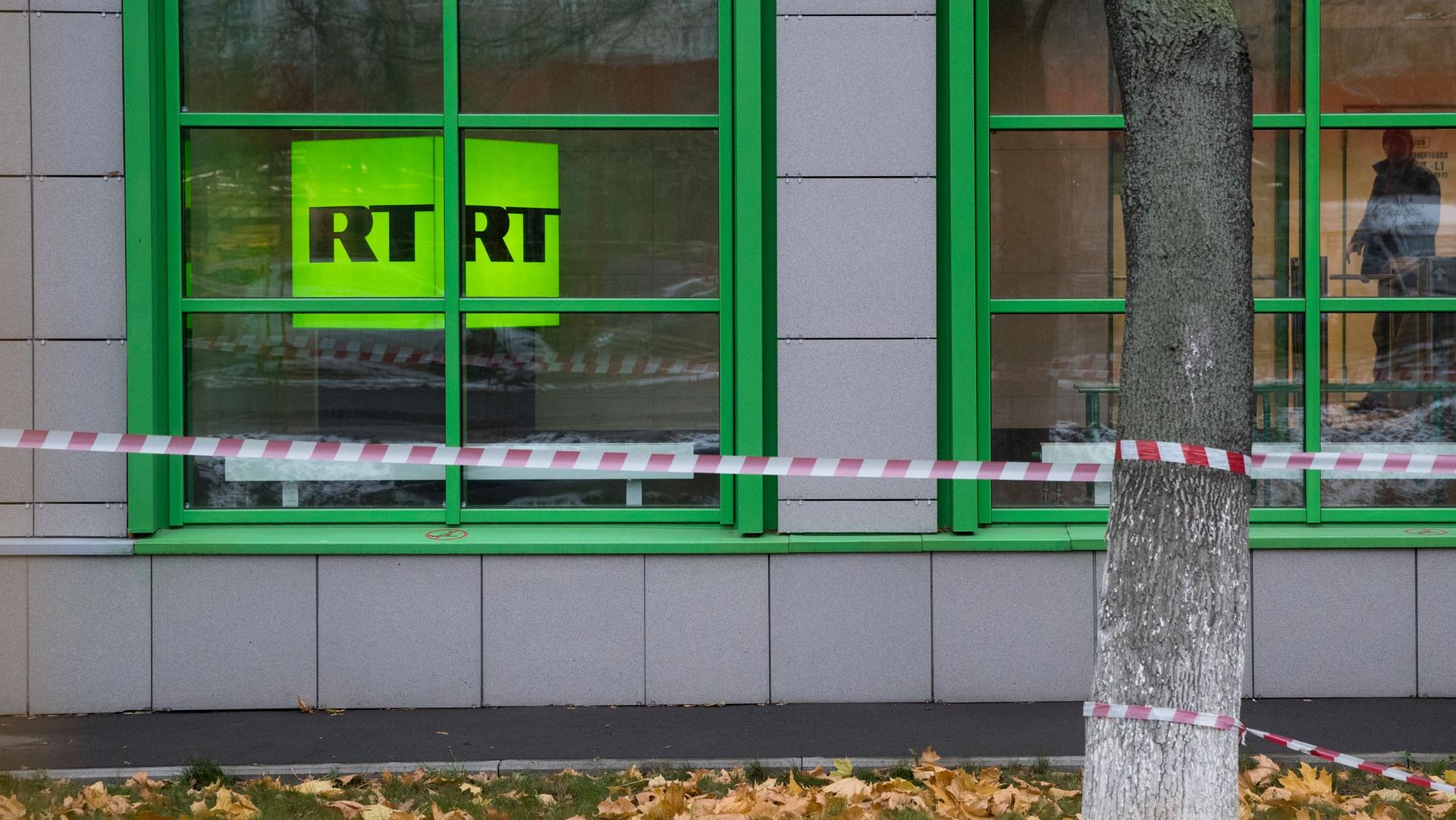The Baltic country of Latvia last week banned RT, the state-controlled Russian television channel, saying it is effectively controlled by a media figure who is under European Union sanctions. As of Thursday, the channel is also banned in neighboring Lithuania. Estonia has said it may follow suit.
The Radio and Television Commission of Lithuania said their Wednesday decision follows recommendations of the Lithuanian Foreign Ministry to close the channel, noting that the Russian state TV presenter who allegedly controls RT, Dmitry Kiselev, is currently blacklisted by the European Union. Kiselev, who is known for “extravagant tirades demonizing the West, stigmatizing homosexuals and portraying Ukraine as a country overrun by violent fascists,” has been on the EU sanctions list for his alleged role in promoting Kremlin propaganda in support of Russia’s 2014 annexation of Crimea.
“This decision is motivated not by violations, but the fact that Mr. Kiselev is on the list of persons under the EU sanctions. The same decision was taken in Latvia and now in Lithuania,” said Mantas Martisius, chairman of the Lithuanian commission. Latvia justified its ban the same way on June 30. It urged all other EU members to follow suit in banning RT. In past years, Latvia and Lithuania have temporarily suspended other Russian state television channels.
Related: Russia to retaliate after US tells RT to register as ‘foreign agent’
In a reaction to Latvia’s decision, Kiselev said he was never in charge of RT, formerly known as Russia Today, and suggested that Latvia should apologize to the channel and put it back on air.
Kiselev heads the state Rossiya Segodnya media group that includes the RIA Novosti news agency and the Sputnik news service directed at foreign audiences.
RT is widely seen as a Kremlin propaganda tool in the Baltic region, but more broadly as well.
Solvita Denisa-Liepniece is an assistant professor at Vidzeme University of Applied Sciences in Latvia and a consultant on media literacy at the Baltic Centre for Media Excellence. She spoke with The World’s Carol Hills about the bans on RT and the efforts to combat Russian disinformation networks.
Related: Countering Russian disinformation the Baltic nations’ way
Carol Hills: Solvita, what kind of influence does RT have worldwide? I mean, is it really popular, and does it pose a threat because of the sense that it’s so biased?
Solvita Denisa-Liepniece: The problem is that RT is a part of this infrastructure of propaganda, this system of spreading hostile narratives on Kremlin-owned channels. So you can find very different stories, not only about Latvia, because this is not only about what kind of stories Russian-language users have about Latvia, but also what do they have about Ukraine? What do they have about [the] downing of MH17? What do they have about the case of poisoning [Sergei] Skripal? So this is the question about infrastructure. And RT is spreading disinformation, we have proof from different researchers. The problem is that we cannot be over-focused on RT. This is a very difficult system of information activities, and we have to monitor also other elements in this machinery of disinformation and propaganda.
Related: How Russia laid the groundwork for future disinformation campaigns
But to clarify, RT wasn’t banned because of its disinformation. It was banned, as I understand it, because of its ties to Kremlin media boss Dimitri Kiselev. And Kiselev is currently blacklisted by the European Union. For those who don’t know, how would you describe Kiselev? Why has he been blacklisted by the EU?
One may say that he’s one of the main known faces of Russian propaganda and disinformation, mainly internally, for a domestic audience, but also in Latvia. When you [ask] open-ended questions, you can find that some people also trust him and that they think that Dmitri Kiselev is a very well-known and qualitative journalist. Latvia’s media regulator believes that he is also the real head or RT channel system — not Margarita Simonyan, as she’s an editor-in-chief — but he is the main person. And the Latvian media regulator believes that they have enough proof and that they are able to share this proof with other European regulators.
Related: Russia’s RT is contesting the very meaning of ‘truth’
But Kiselev and RT’s editor-in-chief, Margarita Simonyan, the woman you mentioned — they both deny Kiselev’s ties to the RT channel. What do you make of that statement?
I think that they can foresee that following the Latvian example, there might be more and more countries who will join Lativa and Lithuania and that they will find this precedent as good enough to ban this RT system in their countries.
Related: In Europe, accusations of Russian meddling in elections come as no surprise
What kind of message, if any, does Lithuania and Latvia’s ban on RT send to Russian President Vladimir Putin?
I think that Latvia became the leader, showing to the European Union and to the world that we have to care about information. Strategic communication is important, and we understand the importance.
This interview has been edited and condensed for clarity. AP contributed reporting.
Our coverage reaches millions each week, but only a small fraction of listeners contribute to sustain our program. We still need 224 more people to donate $100 or $10/monthly to unlock our $67,000 match. Will you help us get there today?
